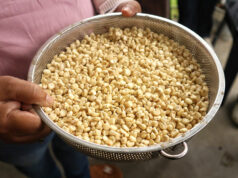Davao City losing out on investors due to lack of industrial zones
DAVAO CITY is being hindered on the investment front by the absence of economic zones and the unavailability of large contiguous areas suitable for agriculture, according to the city’s business chamber.
“The problem now is no longer about investment promotion but investment capture,” Davao City Chamber of Commerce and Industry, Inc. (DCCCII) President Arturo M. Milan said during this week’s Kapehan sa Dabaw media forum.
“(Investors) are coming, but there’s a lot of things we need to do and the city is doing its best and trying to offer incentives, but there’s a limit to what the city can offer,” he added.
Mr. Milan cited a company based in Guangdong, China that is keen on transferring its rubber manufacturing plant to Davao City.
“In China there is a scarcity of labor and any available labor, it is too expensive… that is why they are looking at the Philippines, particularly Davao. They came and they wanted to explore the potential of putting up a manufacturing facility in Davao City,” he said.
The company found positives in a stable power supply and the availability of an English-speaking work force, Mr. Milan said, but the “downside” is the absence of an industrial park.
“Being a foreign-owned company, they are looking for an industrial estate where they can locate and maintain 100% foreign ownership,” Mr. Milan said.
John Carlo B. Tria, DCCCII vice-president for professional and service ventures, said what the business group is trying to focus on matching potential partners.
“A lot of our local entrepreneurs and businessmen will really have to go beyond the usual casual meetings over coffee, and discuss business ventures,” Mr. Tria said.
Mr. Milan also said that land tenure is a major challenge for investors.
“Our land is sold piecemeal because of the agrarian reform (program), so if you need a big site, especially for agriculture… where can you find an area?” he said.
A Malaysian group interested in establishing an oil palm plantation needed 1,000 hectares, but the available contiguous areas have ancestral domain restrictions.
“We have a lot of vacant and available unproductive land, but they are ancestral domain areas. And when you negotiate, it’s a very tedious process to get prior consent, the permits that you have to secure. It’s kind of challenging,” Mr. Milan said. — Maya M. Padillo



